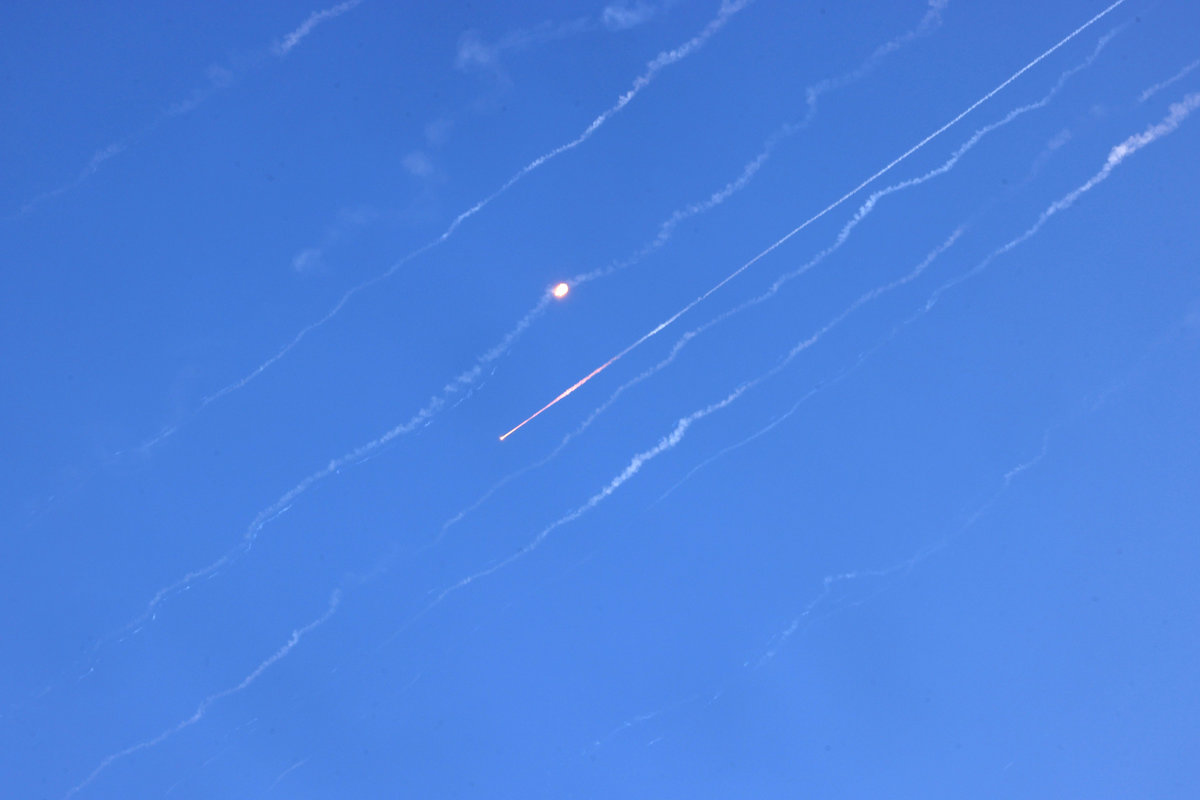JERUSALEM: Israel and Iran exchanged fire again on Friday, a week into the war between the longtime enemies.
Here are the latest developments:
Iran meetings
European top diplomats are meeting with Iran’s Foreign Minister Abbas Araghchi in Geneva on Friday to discuss Iran’s nuclear programme.
“I’ve received several phone calls reassuring me that the Zionist regime would not target” Araghchi en route to Geneva, his adviser Mohammad Reza Ranjbaran said on X.
Foreign ministers from France, Germany, Britain and the EU are urging de-escalation, with British Foreign Secretary David Lammy saying the next two weeks are “a window... to achieve a diplomatic solution”.
Separately, the UN Security Council is also due to convene on Friday for a second session on the conflict, at Iran’s request with support from Russia, China and Pakistan, a diplomat told AFP on Wednesday.
Overnight strikes
Israel’s military said Friday it struck dozens of targets in Tehran overnight, including what it called a centre for the “research and development of Iran’s nuclear weapons project.”
In an upscale neighbourhood of Tehran, some residents were looking out at the night sky from their rooftops, with red blasts lighting up the darkness, AFP journalists saw.
In another area, an Iranian cried out through a loudspeaker, with music blasting in the background: “Death to Israel, death to America!”
Iran’s Revolutionary Guards said more than 100 “combat and suicide” drones were launched at Israel on Thursday.
Trump waiting to decide
US President Donald Trump said Thursday he will decide whether to join Israel’s strikes on Iran within the next two weeks as there is still a “substantial” chance of negotiations to end the conflict.
The Wall Street Journal reported Trump told aides he approved attack plans but is holding off to see if Iran will give up its nuclear programme.
Tehran ally Moscow said any US military action “would be an extremely dangerous step”, while pro-Iran groups in Iraq threatened retaliatory attacks.
Dozens of US military aircraft were no longer visible at a US base in Qatar on Thursday, satellite images showed -- a possible move to shield them from potential Iranian strikes.
Iran’s new intelligence chief
Iran appointed a new chief of intelligence at its Revolutionary Guards on Thursday, the official IRNA news agency said, after his predecessor was killed in an Israeli strike last week.
Major General Mohammad Pakpour, the commander of Iran’s Islamic Revolutionary Guards Corps, appointed Brigadier General Majid Khadami as the new head of its intelligence division, IRNA said.
He replaces Mohammed Kazemi, who was killed on Sunday alongside two other Revolutionary Guards officers -- Hassan Mohaghegh and Mohsen Bagheri -- in an Israeli strike.
Ali Shamkhani, adviser to supreme leader Ayatollah Ali Khamenei, was in stable condition, state TV reported on Friday, after he was seriously injured last week.
Death toll
The body of a woman was recovered on Thursday from a building struck by an Iranian missile four days earlier, taking the overall death toll in Israel to 25 since the war began, according to Israeli authorities.
Iran said Sunday that Israeli strikes had killed at least 224 people, including military commanders, nuclear scientists and civilians. Authorities have not issued an updated toll since.
Arrests and blackout
Iranian police announced the arrest on Thursday of 24 people accused of spying for Israel.
Authorities in both Israel and Iran have announced arrests for espionage and other charges since the war began on Friday.
Norway-based NGO Iran Human Rights said at least 223 people have been arrested nationwide on charges related to collaboration with Israel, cautioning that the actual figure was likely higher.
Iran imposed a “nationwide internet shutdown” on Thursday -- the most extensive blackout since widespread anti-government protests in 2019 -- internet watchdog NetBlocks said.
The shutdown “impacts the public’s ability to stay connected at a time when communications are vital”, NetBlocks wrote on X.









